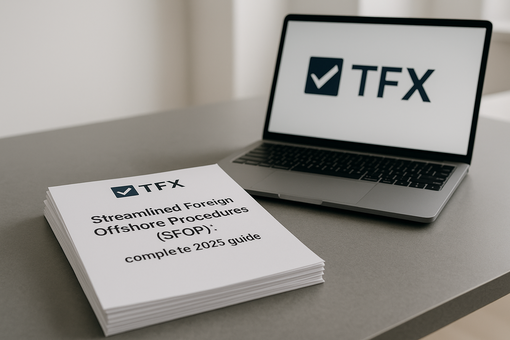An indepth guide to assurance vie: France’s tax efficient investment tool

Assurance vie is a cornerstone of French personal finance, offering a blend of investment growth and life insurance benefits. It's particularly popular due to its flexibility and favorable French tax treatment. Expats seeking to optimize their financial planning and estate succession should consider the tax benefits of this versatile product.
What is assurance vie?
Assurance vie is a life insurance-based investment vehicle that allows individuals to invest in a range of financial instruments such as mutual funds, bonds, and ETFs. Unlike traditional life insurance, its primary focus is on investment growth rather than solely providing a death benefit.
How it differs from term life insurance
While both products involve life insurance components, their structures and purposes differ significantly.
Term life insurance is designed purely to provide a death benefit for a fixed period and typically does not include any investment component. Its tax advantages are limited.
In contrast, assurance vie combines life insurance with investment opportunities such as mutual funds, stocks, real estate funds, or structured products. It is often used as a long term financial planning tool and offers significant tax benefits, particularly under French tax laws, making it attractive to those looking to grow and transfer wealth efficiently.
For expats retiring in France, assurance vie offers a flexible and tax-efficient way to grow and pass on wealth.
Key features
Assurance vie stands out due to several key characteristics. Its flexible withdrawals, long-term assurance vie taxation perks, and broad investment range offer strategic financial planning opportunities:
- Tax-efficient growth: Investments grow tax-deferred, allowing for compounding without immediate income tax implications.
- Flexible withdrawals: Funds can be accessed partially or fully, providing liquidity when needed.
- Estate planning advantages: Beneficiaries can receive proceeds with favorable French tax treatment, often outside the standard inheritance process.
- Diverse investment options: Policyholders can choose from a range of assets, tailoring the investment to their risk profile.
These features make this tax investment product a compelling option for both residents and expats in France. With the right tax-saving strategy, policyholders can optimize both capital gains growth and inheritance outcomes.
How assurance vie works
Assurance vie is a popular, tax-efficient investment vehicle in France. It is accessible to both French residents and expats. Below is a clear breakdown of how it works and why it’s often preferred for long-term savings and estate planning.
Eligibility
This policy is open to a wide audience. Whether you're a French resident or an expat living in France, you're eligible to open an assurance vie. Its inclusive structure makes it a go-to option for many looking to optimize savings and inheritance strategies.
Core components of the policy
The assurance vie structure is straightforward but flexible:
- Subscriber control: You, as the policyholder (subscriber), open the policy, fund it, and define its terms.
- Estate planning flexibility: You designate beneficiaries who will receive the proceeds upon your death, often bypassing standard inheritance rules.
- Tax-deferred growth: Your contributions are invested in financial instruments such as mutual funds, ETFs, or government bonds, and gains accumulate without immediate tax implications.
Assurance vie is not just about returns. It is a powerful tool for legacy planning, often allowing you to pass assets with favorable tax treatment.
Investment choices and risk profiles
Assurance vie policies offer a spectrum of investment options:
- conservative funds for risk-averse investors
- balanced portfolios for moderate growth with stability
- aggressive options focused on equities for long-term capital appreciation
Pro tip. You can adjust your investment allocation over time as your goals or risk tolerance change. This makes assurance vie adaptable to life's stages.
By tailoring these elements, individuals can create a personalized strategy that aligns with their financial objectives. Also, US expats should pay particular attention to assurance vie taxation and Form 8938 reporting obligations.
Worried about US tax on your assurance vie?
Tax advantages of assurance vie
One of the most appealing aspects of assurance vie is its range of long-term tax benefits and its favorable French tax treatment, making it a powerful tool for deferring taxes, reducing liability, and optimizing inheritance planning:
- Income tax deferral on investment gains: Earnings within the policy are not subject to income tax until funds are withdrawn, allowing investments to grow more efficiently.
- Favorable treatment after 8 years: Policies held for over eight years benefit from tax reductions on withdrawals, including an annual allowance (€4,600 for individuals, €9,200 for couples) and lower tax rates on gains.
- Inheritance tax efficiency: Proceeds passed to beneficiaries can be exempt from French tax up to €152,500 per beneficiary, with amounts above taxed at favorable rates.
These tax benefits for both residents and expats make assurance vie a strategic tool for long-term financial planning.
Inheritance and succession planning benefits
Assurance vie offers significant advantages for estate planning, including direct wealth transfers and exemptions under French succession law, especially for non-traditional beneficiaries:
How it helps pass on wealth
The whole point of designating beneficiaries is to guarantee that policyholders can pass on wealth smoothly by:
- Bypassing standard inheritance laws: Assets can be transferred directly to chosen individuals, circumventing the rigid French succession rules.
- Providing for non-relatives: Friends or non-family members can be named beneficiaries, offering flexibility in estate distribution.
- Ensuring timely asset transfer: Funds are typically disbursed more quickly than through traditional inheritance processes.
Exercising control over asset distribution while benefiting from efficient assurance vie taxation, particularly under inheritance rules, is not only a major benefit but a changer in the game.
Rules for contributions before/after age 70
The age at which contributions are made affects tax implications, which is why attention should be paid to these rules.
- Before the age of 70: Each beneficiary is entitled to receive up to €152,500 tax-free. Any amount exceeding this threshold is taxed at favourable rates.
- After the age of 70: A total exemption of €30,500 applies across all beneficiaries, with standard inheritance tax rates applied to any excess.
Strategic planning and strict adherence to these age threshold conditions can optimize the tax benefits of assurance vie.
Designating beneficiaries outside the French forced heirship rules
This type of life assurance contract gives subscribers the freedom to bypass restrictive French inheritance laws, thereby having:
- Flexibility in beneficiary selection: Policyholders can choose any individual, regardless of familial ties.
- Protection of assets: Ensures that designated beneficiaries receive assets as intended, even if they fall outside the standard inheritance hierarchy.
- Control over asset distribution: Provides a mechanism to distribute wealth according to personal wishes, not just legal defaults.
These features make this life assurance contract an exceptionally flexible vehicle for shaping how assets are distributed as it allows account owners to tailor estate plans to their specific wishes while benefiting from favorable tax treatment.
Key considerations for expats using assurance vie
Expats should be aware of certain specific factors when utilizing policies of assurance vie:
- Cross-border tax implications: For US citizens, assurance vie may be considered a Passive Foreign Investment Company (PFIC), leading to complex reporting requirements and potential income tax liabilities.
- Accessing funds while abroad: Withdrawals may be subject to different tax treatments depending on the country of residence, necessitating careful planning.
- Reporting requirements in your home country: Countries like the US require disclosure of foreign financial assets, including assurance vie, to tax authorities.
If you're a US citizen living in France, you'll need to ensure your assurance vie is correctly reported under the US tax code. While this policy offers tax advantages in France, the IRS may view it differently potentially classifying it as a foreign trust or PFIC.
At Taxes for Expats, we've been helping US expats in France for over 20 years. We know how to align French financial tools with US compliance requirements, so you can invest with confidence.
French vs Luxembourgish assurance vie: what’s the difference?
While both French and Luxembourgish assurance vie policies offer similar benefits, they are differences that can significantly impact investment flexibility, taxation, and cross-border advantages:
| French Assurance Vie | Luxembourgish Assurance Vie | |
|---|---|---|
| 1. Regulatory framework | Governed by French law | Governed by Luxembourg law |
| 2. Investor protection | Standard French protections | Enhanced protection via the "Triangle of Security" |
| 3, Currency flexibility | Primarily Euro-denominated | Multi-currency options available |
| 4. Multilingual support | Limited | Extensive, catering to multiple international clients |
Choosing between French or Luxembourg assurance vie policy depends on individual financial goals and residency status.
Maximize your assurance vie benefits: Get expert tax guidance
If you’re an American with an assurance vie policy in France, understanding the US tax implications is critical. While we don’t provide advice on French investments or taxes, Taxes for Expats can help you stay compliant with US tax laws and avoid costly filing errors. Make informed decisions and get the most out of your policy without running afoul of the IRS.
Stay compliant with your US taxes in France
Get startedFAQ
Assurance vie is available to both French citizens and expats residing in France. However, tax implications may vary based on your home country's regulations.
Upon changing residency, the assurance vie taxation may be influenced by international tax treaties and the tax laws of your new country. Consulting a tax advisor is recommended.
The designated beneficiaries will receive the proceeds. The French tax treatment depends on the amount and the relationship between the deceased and the beneficiary.
Funds in an assurance vie can be withdrawn partially or fully, but early withdrawals may affect the tax benefits and incur charges.
While both provide a death benefit, assurance vie combines investment and insurance, offering capital gains potential and tax benefits, unlike traditional life insurance.
Yes, investments are subject to market risks. It's crucial to choose options that align with your risk tolerance.
The minimum investment varies by provider, but some policies can be started with a few thousand euros.
Luxembourgish assurance vie offers enhanced investor protection, multi-currency options, and caters to international clients.



